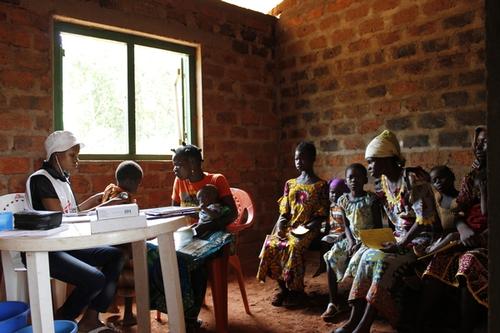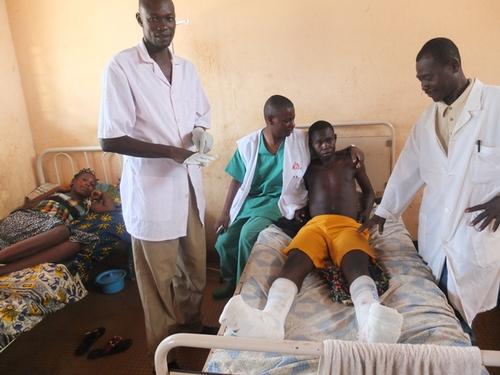On Monday 10 December, the town of Ndélé, in the northeastern Central African Republic (CAR), was the target of an attack by the Union of Democratic Forces for Unity (UFDR). There were exchanges of gunfire between the UFDR and Central African Armed Forces (FACA) based in Ndélé.
The UFDR took control of some parts of the town. Some casualties were reported among the ranks of the FACA and one wounded civilian was transferred to Ndélé hospital, where he was tended to by a team from Médecins Sans Frontières (MSF). The majority of the population fled the town to avoid the fighting. About 300 to 400 people, mostly women and children, have gathered at the airstrip, which is secured by the Central African Multinational Force (FOMAC). The Convention of Patriots for Justice and Peace (CPJP), a rebel group that is now based in Ndélé and waiting for the demobilisation, disarmament and reintegration process to begin, did not engage in direct hostilities with the UFDR.
Part of the MSF team was evacuated by air on Tuesday 11 December. The remaining staff, four international and 12 national staff, are all medical personnel. The hospital is continuing to provide health services. So far, the team has treated two injured patients and reported two deaths. Three displaced children were brought to the hospital for consultations.
MSF is sending a small mobile medical team to the airstrip and will re-evaluate needs on a daily basis. If no further military offensives take place over the next few days, it is expected that people will return to the town with minimal ill effects beyond an increase in patients with respiratory infections and diarrhoea. Food has been donated, and the International Committee of the Red Cross is supplying water to the displaced people.
MSF opened its programme in Ndélé in 2010. The team works in Ndélé hospital and at eight health posts in the area, providing free medical care to about 52,000 people, mainly people who have been displaced and other victims of violence. Activities include basic and specialist healthcare, nutrition programmes, treatment for neglected diseases and outreach activities, but malaria is a focus of their work since it is the main cause of illness in the area.
MSF has been working in the CAR since 1997 and operates seven programmes in five of the country’s seven health districts. In collaboration with the Ministry of Health, MSF supports seven hospitals and about 38 health posts, and activities range from basic healthcare, to HIV and TB care, neglected diseases, nutrition programmes, vaccination, surgery and other specialist healthcare. Malaria is often the main focus of MSF’s programmes.





